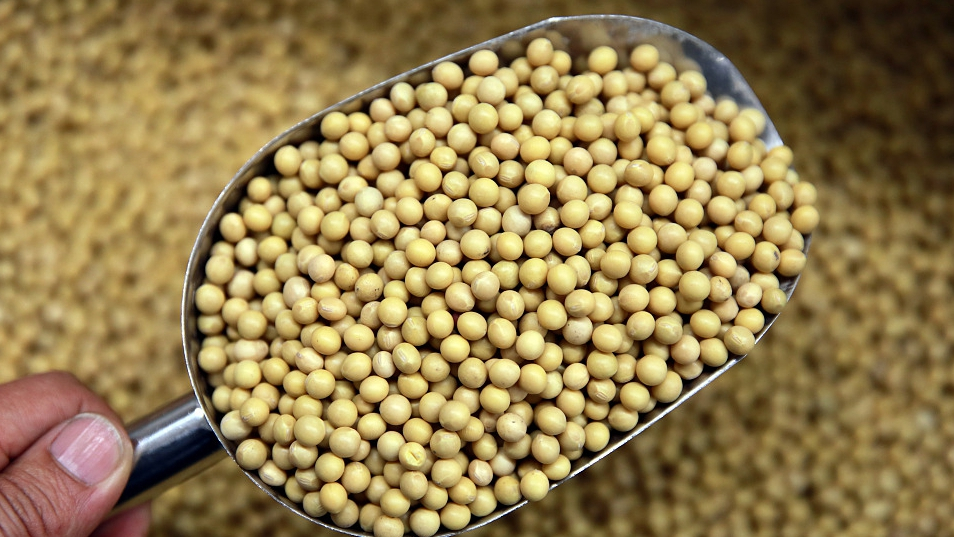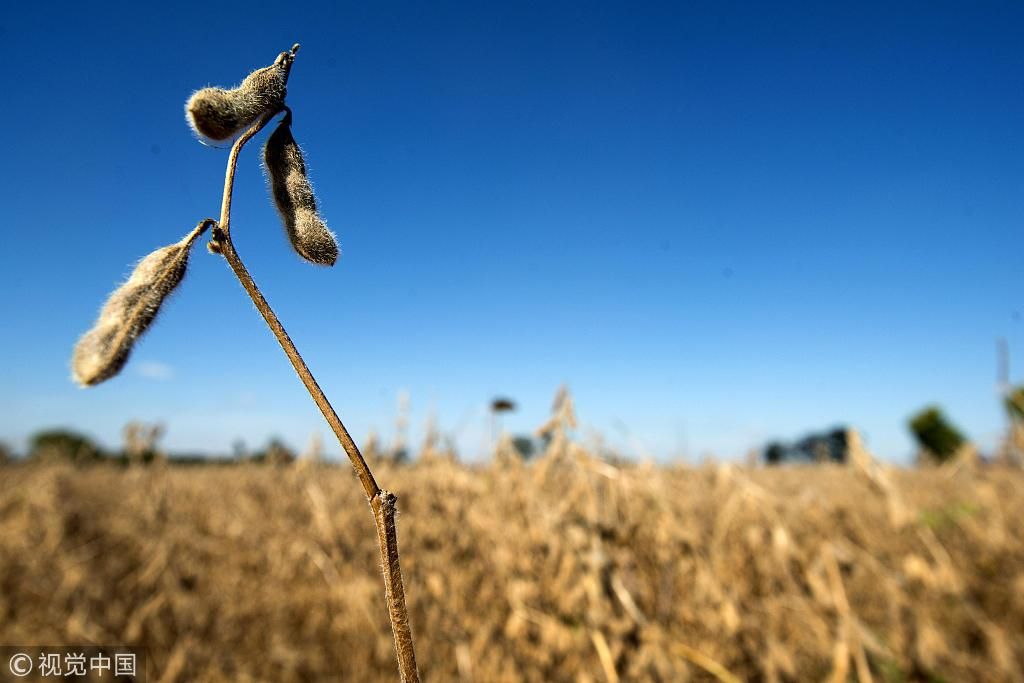
Economy
18:56, 08-Mar-2019
China February soybean imports fall to four-year low amid tariffs, flat demand
CGTN

China’s soybean imports in February fell to their lowest monthly level in four years, as buying slowed amid uncertainties over trade relations with the United States and flat demand for soymeal, customs data showed on Friday.
The world's top buyer of soybeans brought in 4.46 million tonnes of the oilseed in February, according to data from the General Administration of Customs. That was down 17 percent from the same month a year earlier as a hefty tariff on soybeans from the United States, China's second-largest supplier, weighed.
"The low figures were still mainly because of tariffs on U.S. soybeans," said Tian Hao, senior analyst with First Futures.
"Importers did not buy lots of Brazilian beans recently either, as they were waiting to buy U.S. soybeans, amid optimism of a final China-U.S. trade deal," Tian said. "What is more, there were no commercial benefits to bring in Brazilian soybeans as demand was flat due to African swine fever outbreaks."
Chinese buyers had turned to Brazilian beans but such purchases have slowed recently as Beijing and Washington made major progress in trade talks, aimed at ending a lengthy trade dispute.

Soybeans field in Fairfield County, Ohio, U.S. /VCG Photo
Soybeans field in Fairfield County, Ohio, U.S. /VCG Photo
The February figures were also 40 percent down from 7.38 million tonnes in January, the data showed, as crushers slowed production during the Lunar New Year holiday. Soybean imports usually ease in the month of the week-long festival, which fell in early February this year, as businesses close.
For the first two months of 2019, imports fell to 11.83 million tonnes, down 15 percent from the same time a year ago.
Shipments this year have dropped because of African swine fever outbreak, curbing demand for soybeans for use in animal feed.
China typically imports the majority of its oilseeds from the United States in the fourth quarter and early in the new year after the U.S. harvest comes to market. However, buyers have avoided U.S. cargoes because of tariffs imposed on soybeans amid the trade tensions.
Source(s): Reuters

SITEMAP
Copyright © 2018 CGTN. Beijing ICP prepared NO.16065310-3
Copyright © 2018 CGTN. Beijing ICP prepared NO.16065310-3